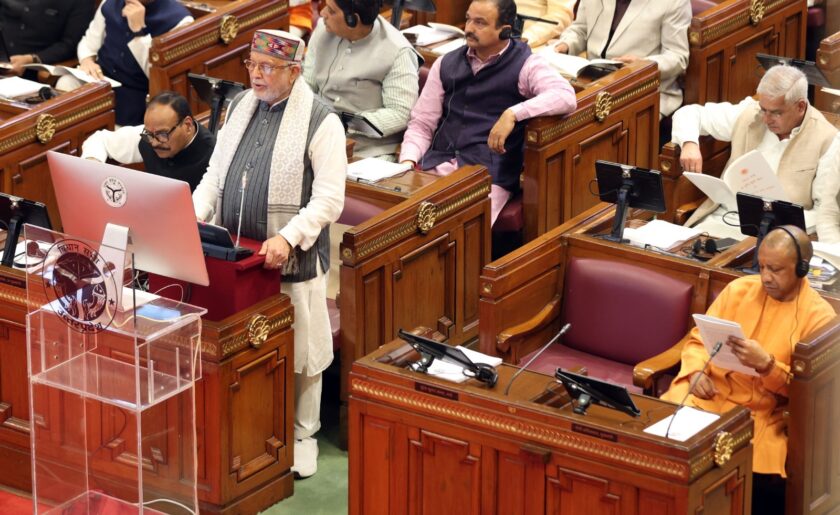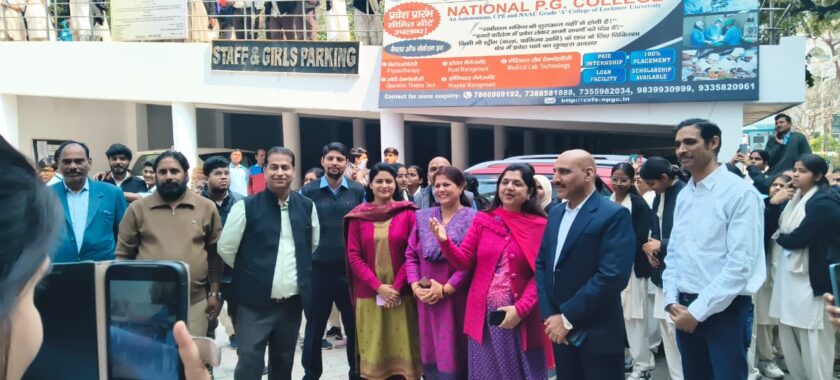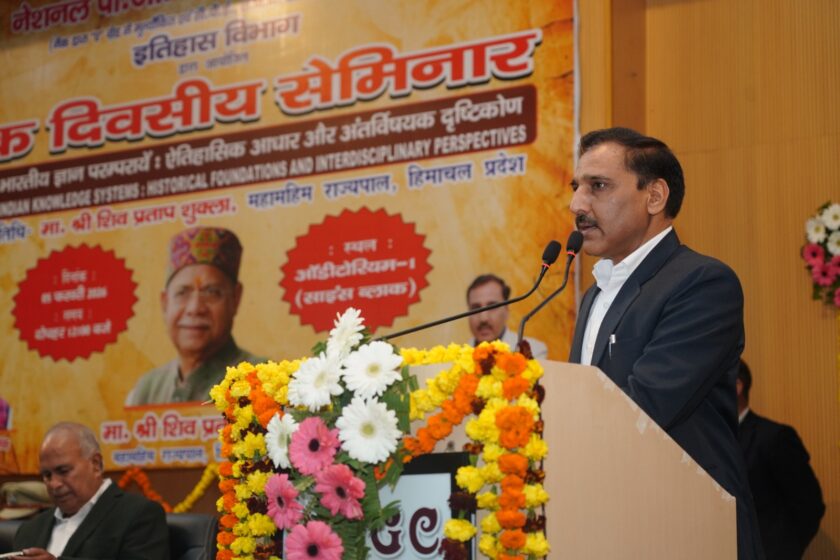Lucknow: Under the aegis of the Uttar Pradesh Punjabi Academy, a seminar on the topic “Influence of Awadhi and Braj Languages in Punjabi Literature” was successfully organized at Pandit Deen Dayal Upadhyay Government Women’s Postgraduate College, Rajajipuram, Lucknow. The seminar witnessed the participation of eminent Punjabi scholars, writers, and literary figures, who presented their perspectives on the subject.
Major (Dr.) Manmeet Kaur Sodhi emphasized that Gurmat literature, particularly Guru Granth Sahib and Sikh religious texts, is enriched by various languages and dialects. As an integral part of Sikh tradition, Gurmat literature encapsulates the teachings of the Gurus, hymns of saints, and philosophical thoughts, predominantly in Punjabi. However, due to the widespread influence of Sikh teachings, it also incorporates elements from other Indian languages, particularly Awadhi and Braj. She highlighted how Sikh Gurus traveled across India, delivering messages in local languages to make their teachings more accessible. The compositions of Guru Nanak Dev Ji, Guru Arjan Dev Ji, and Guru Tegh Bahadur Ji reflect an amalgamation of Braj, Awadhi, Sindhi, Persian, and Sanskrit. The contributions of saint-poets like Kabir, Ravidas, Namdev, and Dhanna Ji played a pivotal role in infusing Awadhi and Braj linguistic elements into Gurmat literature, making it more poetic and devotional.
Randeep Kaur elaborated on how the most significant text of Gurmat literature, Sri Guru Granth Sahib, serves as a mirror to medieval society and literature, naturally reflecting the presence of Braj and Awadhi languages. She pointed out the frequent use of idioms and proverbs from these languages in Gurbani. She further noted that Bhai Gurdas Ji’s “Gurbani Key” and Guru Gobind Singh Ji’s “Dasam Granth” extensively incorporate Awadhi and Braj, rendering them melodious and suitable for singing.
Prof. (Dr.) Ramesh Chandra Verma highlighted the profound impact of Braj and Awadhi on Punjabi literature, especially in poetry and social narratives. He explained that Punjabi and Hindi dialects, including Braj and Awadhi, share linguistic similarities, leading to their mutual influence. Braj, a prominent medieval Hindi dialect, was widely spoken during the Mughal era, and its impact on Punjabi literature is evident, particularly in the works of Kabir, Surdas, and Guru Nanak Dev Ji. Many Punjabi poetic compositions resonate with the themes and stylistic expressions of Braj and Awadhi devotional poetry.
Prof. (Dr.) Surangama Yadav discussed the influence of Awadhi on Punjabi literature, particularly in folk songs, narratives, and romantic ballads. She noted that the themes of love, separation, and longing in Punjabi poetry bear a resemblance to Awadhi traditions. Awadhi’s folk and lyrical traditions have contributed to the evolution of Punjabi folk songs, particularly those centered around customs, traditions, and romantic sagas.
Prof. (Dr.) Preeti Bajpai emphasized that Punjabi literature has not only incorporated but also admired the linguistic richness of Braj and Awadhi. The impact of these languages is visible in Punjabi poetry, devotional literature, and folk traditions, contributing to the progressive evolution of Punjabi as a language enriched by multiple linguistic influences.

The seminar was skillfully moderated by senior scholar and writer Dr. Rashmi Sheel. Towards the conclusion, Arvind Narayan Mishra, the program coordinator, expressed his views on the seminar, highlighting Guru Nanak’s use of multiple languages, including Punjabi, Braj, Awadhi, and Khari Boli, to facilitate religious and social reforms. He noted that Braj was one of the richest poetic languages in Hindi literature, extensively utilized by saint-poets from the 13th century onwards. The linguistic elements of Braj are evident in Guru Tegh Bahadur Ji’s hymns, the verses of Surdas and Kabir in Sri Guru Granth Sahib, and the epic “Dasam Granth” composed by Guru Gobind Singh Ji.
The event saw the presence of key dignitaries, including Arvind Narayan Mishra, Meenu Pathak, faculty members of the college, researchers, and members of the Punjabi community.
At the end of the seminar, Arvind Narayan Mishra, representing the Director of the Academy and serving as the program coordinator, honored the esteemed speakers and scholars with shawls and mementos, extending gratitude and appreciation to all participants.










